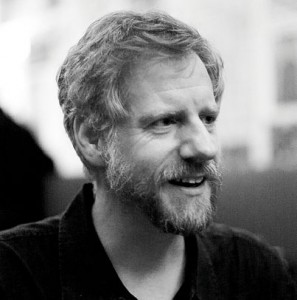I write to thank the many members of our community who worked to support our highly successful event yesterday afternoon organized and convened by Peter Jaszi and entitled The 2013 Marrakesh Treaty: Providing Access to Copyrighted Works for the Blind and Print Disabled. I also write to alert teaching colleagues about the potential usefulness of the video record for use in the classroom or as a supplementary material.
This event is in the spirit of being out front on current events because the treaty was concluded this summer, and Peter was able to put together an all-star panel in a very short time. The video is here: http://www.pijip-impact.org/events/marrakesh/ A transcript for those with hearing impairments will be added shortly.
What’s the Treaty?
The treaty is the first of its kind. A series of multilateral agreements on intellectual property have established the minimum rights that Member States must grant to authors, inventors or other owners. Other bilateral and plurilateral agreements have focused on minimum requirements for enforcing these rights. Now, this treaty pushes in the opposite direction by requiring Member States to cut back on the scope of protection under copyright law so as to allow “authorized entities” within their territory to make print resources available to the blind and print disabled without the consent of the publisher or other copyright owner. Currently less than 2% of the published literature is available to this population in an accessible format. The negotiation was particularly hard fought because of the larger context concerning the future direction of international intellectual property law.
Who spoke?
Representatives of three delegations that negotiated the treaty spoke along with representatives of key civil society and industry stakeholders who were closely involved in the negotiations spoke. Their identities are party of the interesting story. The U.S. delegation was led by Justin Hughes, who had an appointment in the U.S. Patent and Trademark Office but who is a full time member of the Cardozo law faculty. The African delegation was led by Ruth Okediji, who has Nigerian citizenship but who also teaches full time on the University of Minnesota law faculty. Ecuador was represented by Luis Villaroel, who is from Chile and holds his LL.M from WCL. Because these representatives are not all full time diplomats, they were willing and able to be far more candid about the process of an international negotiation than one would normally expect.
Why is the video a useful resource?
At a minimum, the discussion, particularly during the first panel, highlights the importance of framing arguments in both policy and legal advocacy, it draws out the importance of the effects of different kinds of international agreements, it reveals much more than the normal discussion about interest group dynamics, and it offers a rich example of a complex negotiating process that was predicted to fail and succeeded only in the final hours. On the framing point, the interests at stake really set up an interesting question about whether this should be seen as an intellectual property treaty or a human rights/civil rights treaty. On the international law and strategic choices point, there is a nice discussion about the choice to conclude a non self-executing treaty rather than an instrument interpreting existing agreements that would have taken immediate effect.
Thank you . . .
The PIJIP team would like to thank Dean Grossman for his support of the event along with the terrific efforts of the whole SECLE team, Bon Appetit, and a special shout out to Tony and Manuel from facilities. The thunder storm struck during the event and the elevator outage was of particular concern to some guests with guide dogs who needed to leave early. With Manuel at the helm, Facilities was able to provide limited elevator service at a crucial time. PIJIP gets comments of admiration/envy from colleagues at other schools about the number and quality of events that we put on. I’m personally grateful for the “exceeds expectations” performance of the PIJIP staff, but we also collectively recognize that we can only do it with the combined efforts of all of the other offices involved. So, truly, thank you!





